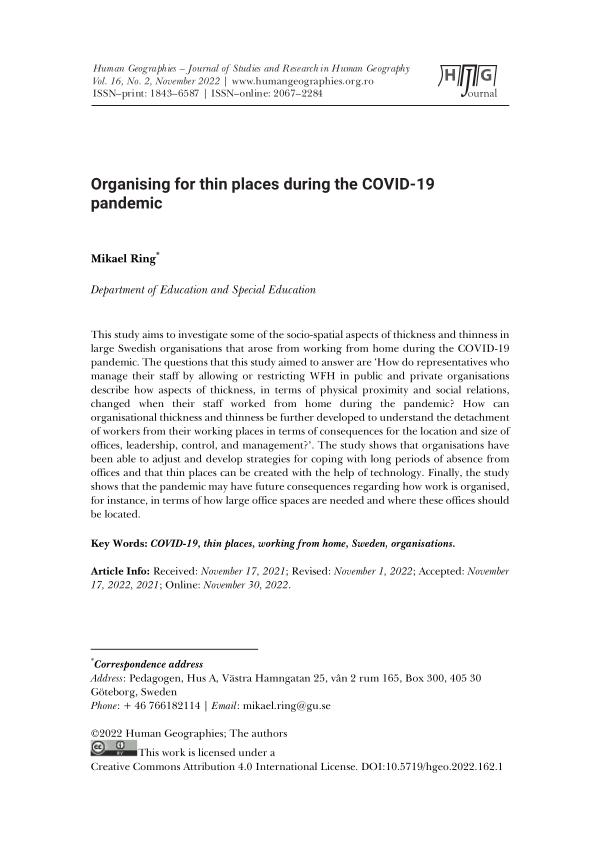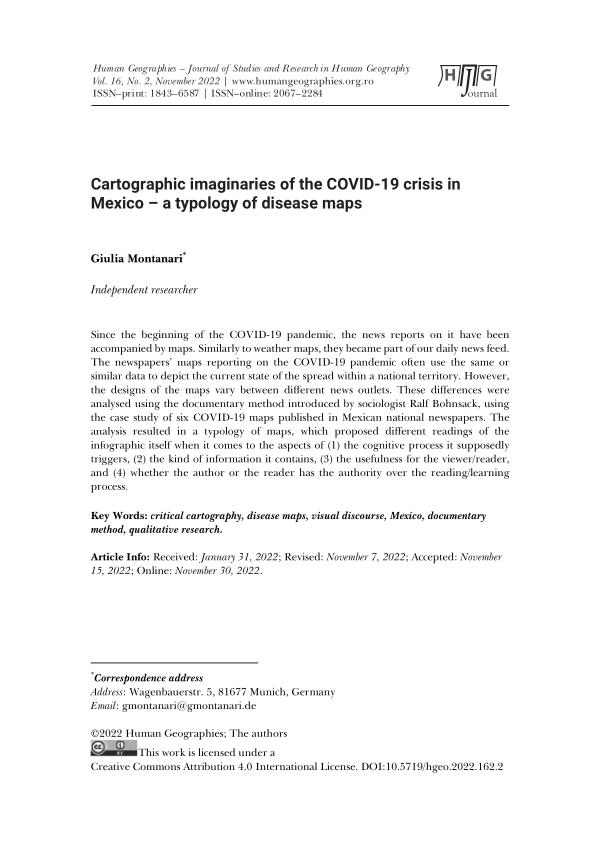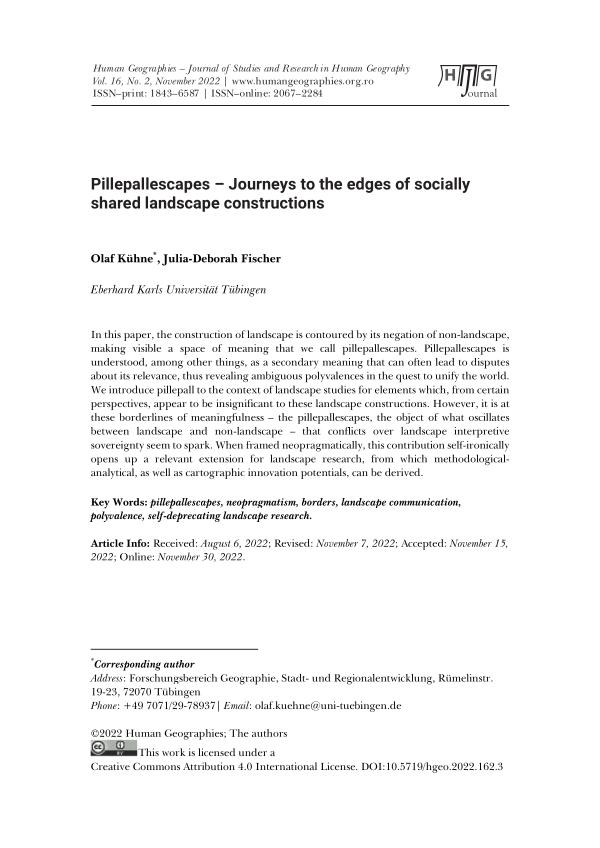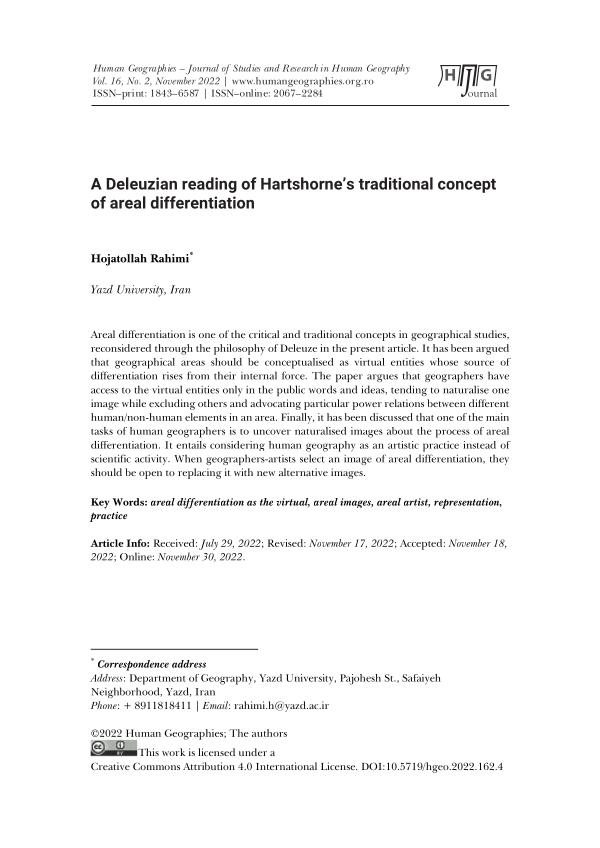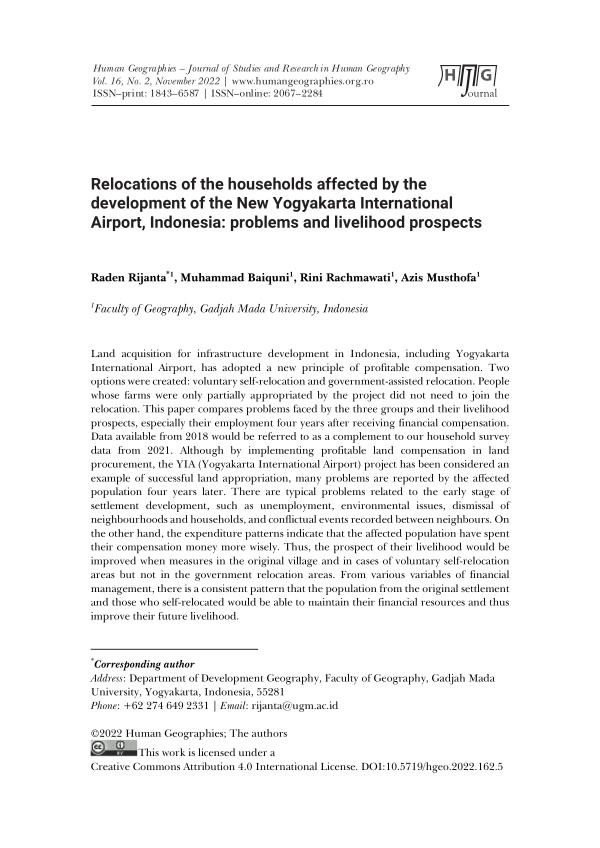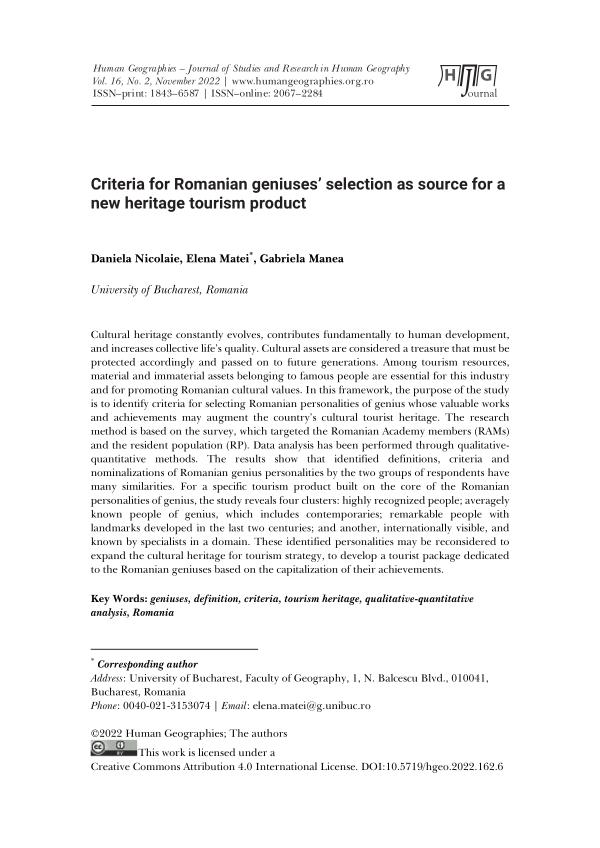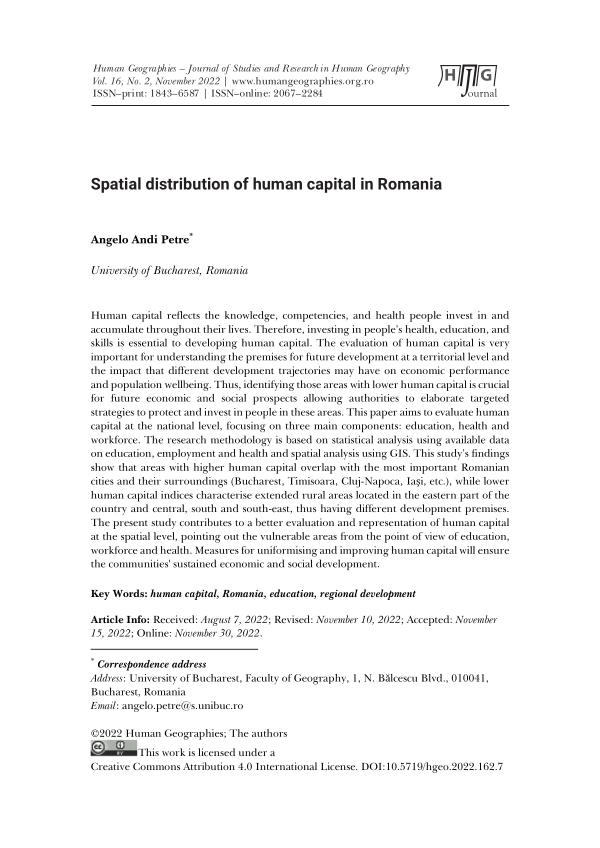Despre revistă
Human Geographies – Journal of Studies and Research in Human Geography a fost publicat pentru prima dată în 2007 pentru a oferi un forum internațional de contribuții sociale, economice și culturale în domeniile geografiei umane. Este un jurnal peer-reviewed, are atât versiuni online, cât și versiuni tipărite și ISSN. Reprezintă inițiativa și efortul membrilor Departamentului de Geografie Umană, Facultatea de Geografie din cadrul Universității din București.
Human Geographies – este o publicație semestrială cu un conținut exclusiv în limba engleză care poate fi vizualizată pe humangeographies.org.ro.
Human Geographies se angajează să publice cercetări academice și comentarii informate cu privire la o categorie largă de aspecte ale geografiei umane (inclusiv probleme urbane și rurale, demografie, mediu social, economic și cultural), probleme legate de locuri și probleme de spațiu. Acesta include contribuțiile unui număr tot mai mare de cercetători și practicieni din geografie, științe umaniste și științe sociale și de mediu, care sunt interesați de geografiile umane, economice și culturale.
Conținutul include articole originale, note și comentarii. Se publicate contribuții originale din domeniile: geografie umană, economie și geografie economică, planificare, dezvoltare teritorială, dezvoltarea infrastructurii, sociologie, studii de populație și administrație publică, politici publice.

